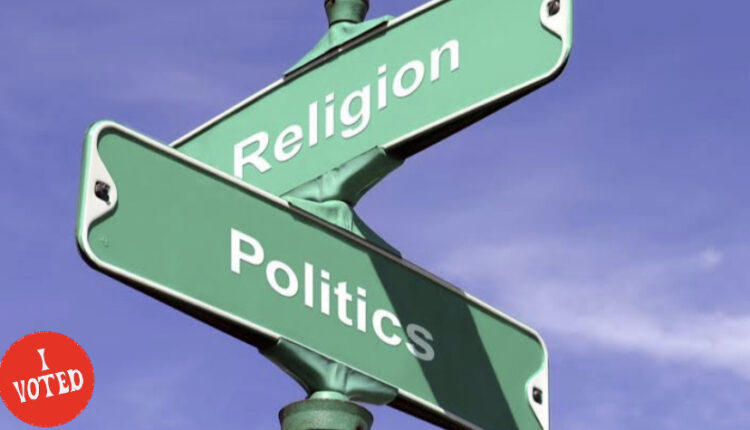Guard Clean Elections Without Identity Politics
Indonesia will soon enter a political year and the political climate in this country is already getting warmer. The 2024 general election (Election) will soon take place. However, eliminating the practice of identity politics still seems to be an important challenge. Especially because it is closely related to equal rights, unity and democratic principles in this country.
Identity politics has the potential to destroy democratic principles. Moreover, Indonesia already adheres to a democratic system as a system of government.
As a democratic country, it is appropriate for the Indonesian people to have equal rights in elections. If the practice of identity politics gets stronger, it is certain that there will no longer be equal rights for all Indonesian people.
So, all parties must participate in guarding the continuity of the 2024 General Election clean without identity politics. The reason is, this dirty practice in politics is very detrimental to the climate of democracy in Indonesia which can lead to divisions in society.
Actually, the discussion of identity politics is still relatively new in this country. Even though its aspects have been around for a long time, it has only been felt recently.
Since ancient times, politics has been closely related to identity. Identity in politics is a necessity that cannot be separated. Political parties must have an identity in order to represent people who share the same identity with them.
If the history is drawn, during the Old Order era, there was the Masyumi Party which represented the identity of Muslims who were against the power of former President Soekarno. There is also the Indonesian Communist Party representing the majority of the workers. Apart from that, there was also the Indonesian National Party as the political vehicle of former President Soekarno who supported the policies of the first Indonesian President.
Forms of identity politics are often used as a way to find masses by political elites, by promoting ethnic, racial, religious and ethnic similarities. Therefore, increasingly here the meaning of identity politics is always connoted with negative things. Given that identity politics is considered a political promotion technique that prioritizes identity rather than ideas.
The negative impact of identity politics is enormous. Candidates who fight in elections will ignore the quality and policies they offer. Because, they will only focus on identity politics. Even campaigns using identity politics will limit the scope of discussion of political policies which will encourage the presence of discrimination.
As Aryojati (2020) explained in his journal, the rise of the issue of identity politics will threaten the unity of the Indonesian people. For example, the use of religious issues in gathering political support. There is a gap that could be boarded by elements who want division in Indonesia. Religion-based identity politics in the campaign creates a divide between religious groups in Indonesia.
Learning from the 2019 Election, many issues with the nuances of identity politics are developing in society. Primarily, these issues are widespread on social media. Generally, patterns are carried out by spreading rumors to hate speech.
In the past 2019 elections, society was polarized based on the camps supporting the presidential candidates Joko Widodo and Prabowo Subianto. The residue smothers society in religious and ethnic polarization. This can be seen from the “2019 change of president” movement, delegitimization of decisions by state institutions (KPU and MK), sentiment and persecution of minority groups.
At that time, the term “cebong-kadrun” emerged plus there was a tendency to stigmatize political support. Jokowi’s supporters are considered non-religious proponents. Meanwhile, those who support Prabowo seem to represent a religious opposition.
Polarization, such as the 2019 Election, actually happened before in the 2017 DKI Jakarta Pilkada. At that time, the use of identity issues was used to seek vote support. There are many hoaxes and even hate speech that smells of SARA aimed at a pair of candidates or individual candidates so that the political opponent loses public support.
The problem is that these issues reach prospective voters who do not have enough knowledge and are easily influenced. So he swallowed the issue whole which caused the intended candidate to lose appreciation even though the candidate’s career track and achievements were qualified enough to become a leader.
The phenomenon of identity politics that brings religious populism will become a mine for democracy. Identity politics will lead to public opinion that people who do not have the same identity as them are interpreted as inappropriate to become leaders or representatives. Of course this can cause minorities to lose their equal rights in the realm of elections. In fact, it is feared that it will eventually harm democracy in this country.
Quoting Jusuf Kalla’s statement on one occasion on private television, he said that identity politics should not be a problem because Indonesia is a pluralistic country. Therefore, according to him, differences in identity must be considered as wealth, not a source of conflict.
In the view of the Former Vice President of Indonesia who is also known to be vocal about issues of identity, identity politics can be a positive thing if it is used to strengthen national unity and integrity. Conversely, if it is used for narrow political interests, then identity politics can divide society, causing conflict.
Therefore, it is hoped that political issues related to identity covered in hate speech will not become a major factor in determining choices in the upcoming 2024 elections. Irrational prospective voters will continue to emerge if identity politics is still used as a weapon in politics.
Political parties should also be able to build campaigns based on ideas with concrete solutions to the problems faced by Indonesian society. So that election contestation does not continue to present polarization which creates divisions among the social strata of Indonesian society.
)* The author is a contributor to Nusantara Reading Room
